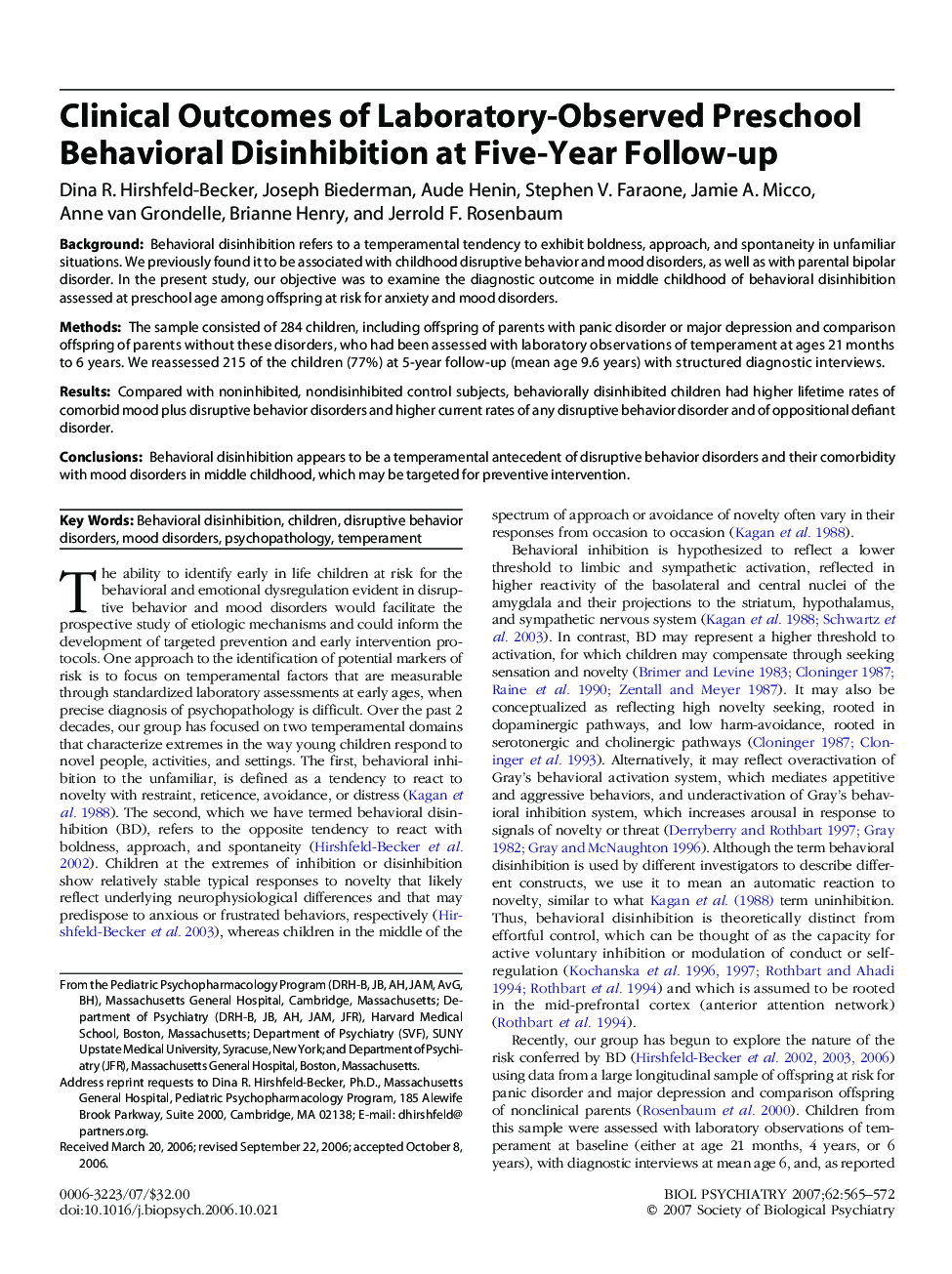| Article ID | Journal | Published Year | Pages | File Type |
|---|---|---|---|---|
| 4180678 | Biological Psychiatry | 2007 | 8 Pages |
BackgroundBehavioral disinhibition refers to a temperamental tendency to exhibit boldness, approach, and spontaneity in unfamiliar situations. We previously found it to be associated with childhood disruptive behavior and mood disorders, as well as with parental bipolar disorder. In the present study, our objective was to examine the diagnostic outcome in middle childhood of behavioral disinhibition assessed at preschool age among offspring at risk for anxiety and mood disorders.MethodsThe sample consisted of 284 children, including offspring of parents with panic disorder or major depression and comparison offspring of parents without these disorders, who had been assessed with laboratory observations of temperament at ages 21 months to 6 years. We reassessed 215 of the children (77%) at 5-year follow-up (mean age 9.6 years) with structured diagnostic interviews.ResultsCompared with noninhibited, nondisinhibited control subjects, behaviorally disinhibited children had higher lifetime rates of comorbid mood plus disruptive behavior disorders and higher current rates of any disruptive behavior disorder and of oppositional defiant disorder.ConclusionsBehavioral disinhibition appears to be a temperamental antecedent of disruptive behavior disorders and their comorbidity with mood disorders in middle childhood, which may be targeted for preventive intervention.
